Review for Re-Animator
What is left to say about ‘Re-Animator?’. It’s certainly an eighties horror classic; arguably the eighties horror classic with its heady mix of dark humour, zany plot and relentless non-CGI splatter.
His is famously the film that put director Stuart Gordon firmly on the mainstream circuit. Gordon started his career in left-field theatre in Chicago with the Chicago Organic Theatre Company which he founded with his actress wife Carolyn Purdy-Gordon, who appears in his first major film (and many others) – Re-Animator.
Joining forces with Brian Yuzna and Charles Band's Empire Picture, the film was a reasonable ‘hit’ at the time on its theatrical run and, arriving at the height of video rental fever in the mid-eighties, became a huge glbal commercial success, remaining a popular feature to this day. Re-watching it today it’s easy to see why.
The film was based on the H. P. Lovecraft episodic novella "Herbert West–Re-animator’ and begins with an introduction to Herbert, a strange but singularly focused student.
A brilliant but singularly deranged, medical student, Herbert West arrives at Miskatonic Medical School and immediately sneers at his professor's outdated views on death. West has his own outlandish theories and has concocted a serum that will bring the dead back to life. Roping in housemate and fellow student, Dan Cain, their shocking experiments work all too well with horrific and very messy results.
After killing and reinvigorating this house-mate’s cat, Rufus, and converting the basement into a laboratory for his own experiments, West draws his housemate, Dan, further into his experiments – much to the disgust of Dan’s fiancé , Megan – who just happens to be the Dean of the University’s daughter.
Soon the diabolic experiments progress to bodies, procured from the university morgue and whilst the formula certainly brings the dead back to life, it appears that the re-animated are little more than slavering zombies. (Cue lots of bloody zombie action…).
During the mayhem, where one of the zombies eventually gets ‘killed’ again with a bone saw, the dean enters the morgue and discovers what they are up to before getting killed by one of the ‘zombies’. So the pair try to bring the ead professor, Dr. Hans Gruber, back to life. But the experiment goes wrong when West administers too much of his secret green formula – turning the professor into a powerful, dribbling zombie-like character.
Dr. Halsey's colleague Dr. Carl Hill, takes charge of Dr. Halsey, whom he puts in a padded observation cell adjacent to his office, assuming him to have gone stark raving mad. He carries a lobotomy on him but realises that Halsey is not ill – he’s actually dead.
Then things go from moderately macabre and violent into absolute carnage. Even with the effects looking a bit ‘comic book’ by today’s standards, it’s still not a film for the squeamish. When Dr. Hill happens upon West’s basement, West decapitates him with a spade though it’s not long until the decapitated head, once ‘re-animated’, finds out a way to re-animate the rest of its severed body and set off to wreak revenge.
The film really moves apace and it’s all thoroughly entertaining, if a bit relentless in the gore stakes. It’s easy to see why it’s become something of a cult classic; it delivers on all fronts – zombies, blood, gore, a few sexy scenes and a pretty good story.
Acting wise it’s all a bit wooden, though it kind of suits the film. The lead is played brilliantly though by Jeffrey Combs who is superb as the almost autistically intense genius, West who appears to be the perfect scientist completely devoid of any moral compass or compassion.
Despite this pack containing many of the same extras as the two-disc special-edition DVD, you may well consider the double-dip worthwhile because the picture quality of the feature is so much better in HD. In fact it’s a 4K restoration (from 2013 and issued previously at that time by Second Sight) with more detail and a general crispness throughout. It’s worth noting that that a completely unrated version of the film is available on Disc 1 – something many fans would gladly trade up for.
Audio wise there is the original Linear PCM 2.0 stereo track or a DTS-HD Master Audio 5.1. It was actually difficult to hear a great deal of difference between the two with very little exclusively delivered to the back of the room although some of the music feels ‘wider’ in 5.1. Both entirely adequate though.
The set comes packed with contextual special features which include
Disc 1
Audio Commentary with director Stuart Gordon
Although this commentary repeats much of what is revealed in other features, about Gordon’s background in theatre and the circumstances around the making of the fim, it is, nonetheless, entertaining and informative enough if you have the time and the inclination.
Audio commentary with producer Brian Yuzna and actors Jeffrey Combs, Bruce Abbott, Barbara Crampton and Robert Sampson
Again, another fun commentary if you feel inclined, this time with a slew of participants all recalling elements of how the film was constructed, not necessarily with direct relevance to what we’re seeing on the screen.
Disc 2
Re-Animator – Integral Version (105m)
A number of cuts were made to material just prior to release to both appease the censors and to help the flow and length of the film. These ‘off-cuts’ have been available to view on previous releases but not in context. Here they have all been reinstated to give what is arguably the most complete version of the film yet, even if it doesn’t necessarily make it the ‘best’ version of the film with some overlong dialogue scenes cut for that very reason.
Re-Animator Resurectus documentary (70m)
This includes interviews with almost all the crew and cast. I would recommend this over the commentaries as it covers pretty much the same ground.
Interview with Director Stuart Gordon and Producer Brian Yuzna (50m)
A strange and virtually un-edited single-shot interview (with Gordon and Yuzna both in shot throughout) lasting some 50 minutes. Interesting but repeats much of what we’ve already learned from the audio-commentary and ‘documentary’.
Interview with Writer Dennis Paoli (11m)
Music Discussion with Composer Richard Band (16m)
There’s also a filmed interview with the man (15m) which is OK but this is very interesting as it plays the score in context within the film.
Interview with Fangoria Editor Tony Timpone (4:30m)
Extended Scenes (21m)
Deleted Scene (3m) (Dream sequence)
Trailer (7m)
Behind-the–Scenes Gallery (6m)
Production Stills (2m)
All in all, a great package for fans of the film, all contained in a steelbook case – albeit pretty much identical in every regard to one previously issued three years or so ago.
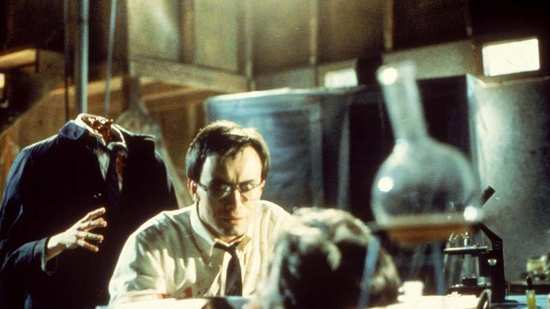
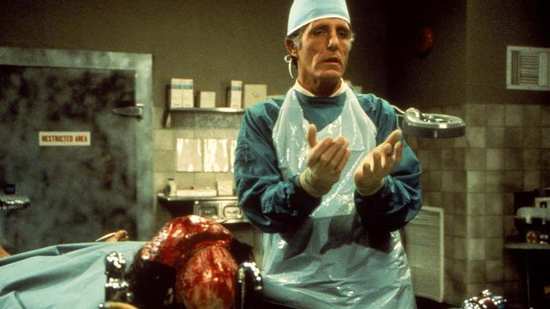
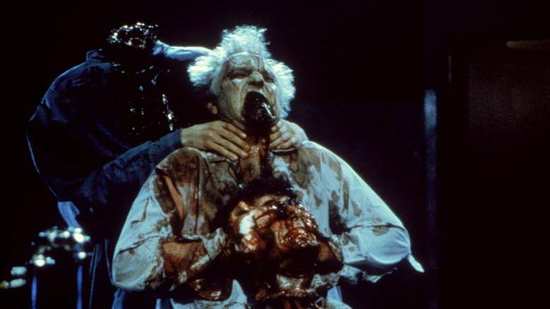
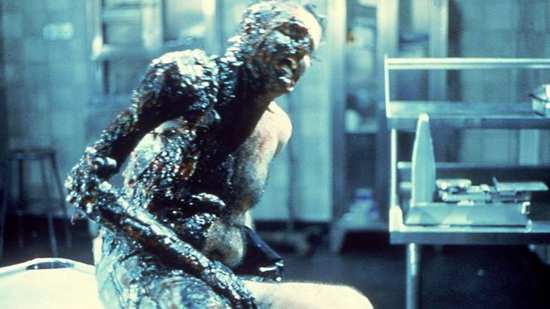
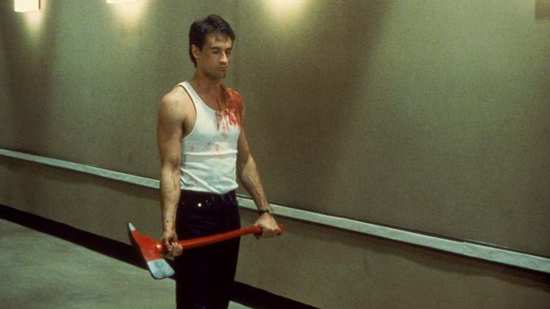
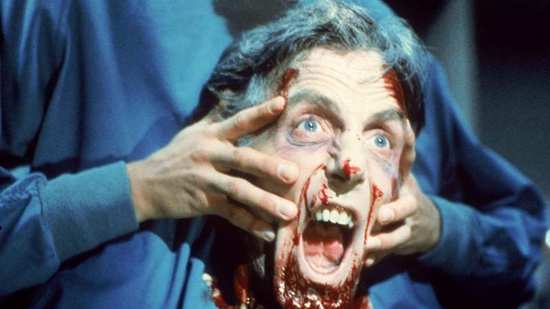
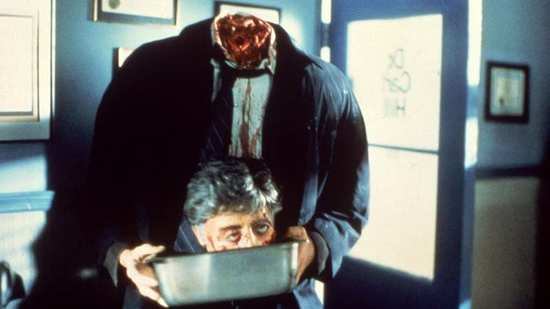
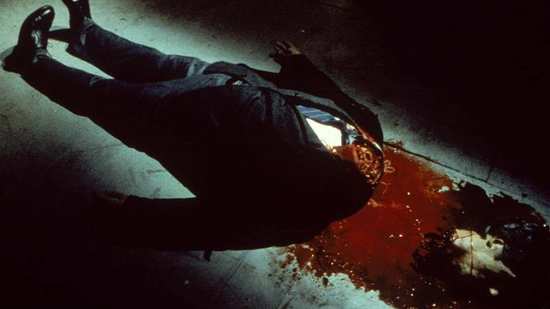
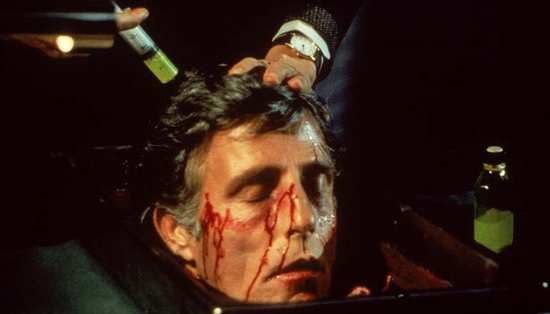
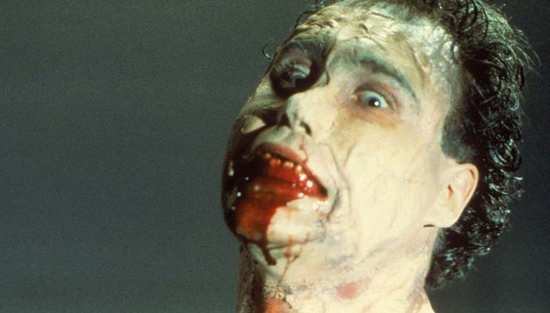
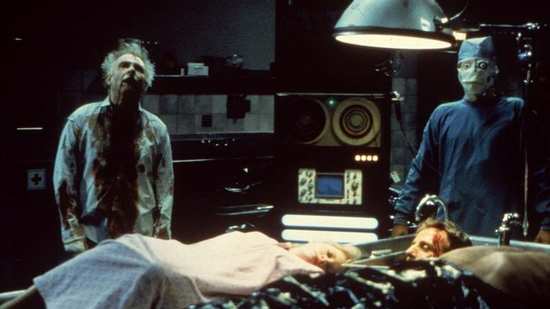
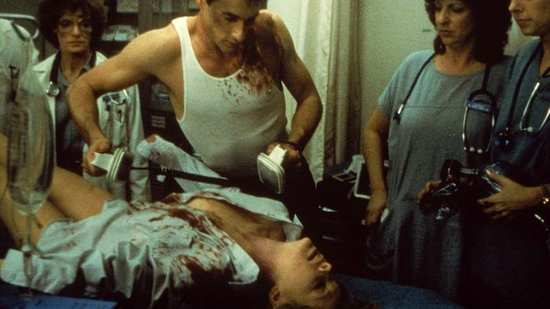
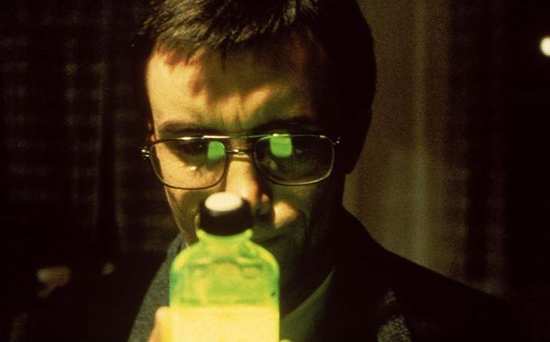
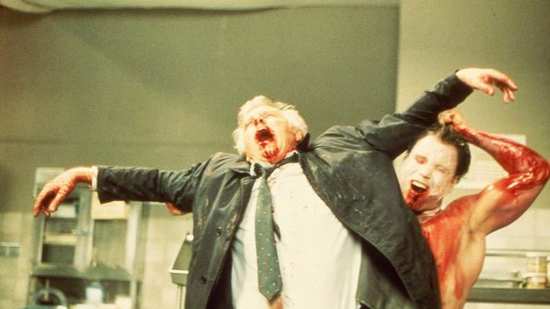
Your Opinions and Comments
Be the first to post a comment!